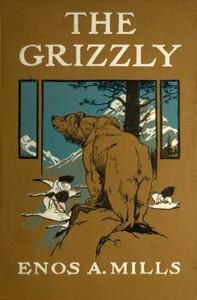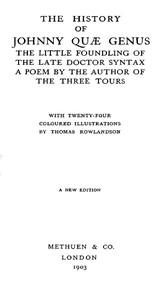|
|
Read this ebook for free! No credit card needed, absolutely nothing to pay.Words: 180822 in 57 pages
This is an ebook sharing website. You can read the uploaded ebooks for free here. No credit cards needed, nothing to pay. If you want to own a digital copy of the ebook, or want to read offline with your favorite ebook-reader, then you can choose to buy and download the ebook.

: The Great Company Being a History of the Honourable Company of Merchants-Adventurers Trading into Hudson's Bay by Willson Beckles Strathcona And Mount Royal Donald Alexander Smith Baron Author Of Introduction Etc Heming Arthur Illustrator - Northwest Canad@FreeBooksWed 07 Jun, 2023 tain Zachary Gillam. FOOTNOTE: "We have another great officer," records "Pleasant Passages" in another budget of news from Paris, "Prince Ruperte, Master of the Horse." In 1576 Sir Martin Frobisher made his first voyage for the discovery of a passage to China and Cathay by the north-west, discovering and entering a strait to which he gave his name. In the following year he made a second voyage, "using all possible means to bring the natives to trade, or give him some account of themselves, but they were so wild that they only studied to destroy the English." Frobisher remained until winter approached and then returned to England. A further voyage of his in 1578-79 made no addition to the knowledge already derived. Six years later Captain John Davis sailed from Dartmouth, and in that and succeeding voyages reached the Arctic circle through the straits bearing his name. He related having found an open sea tending westward, which he hoped might be the passage so long sought for; but the weather proved too tempestuous, and, the season being far advanced, he likewise returned to a more hospitable clime. After this there were no more adventures in this quarter of the world until 1607, when Captain Hudson explored as far north as 80 degrees 23 minutes. On his third voyage, two years later, he proceeded a hundred leagues farther along the strait, and arriving at the Bay resolved to winter there. Hudson was preparing for further exploration when Henry Green, a profligate youth, whom he had taken into his house and preserved from ruin by giving him a berth on board without the knowledge of the owners, conspired with one Robert Ivett, the mate, whom Captain Hudson had removed, to mutiny against Hudson's command. These turned the captain, with his young son John, a gentleman named Woodhouse, who had accompanied the expedition, together with the carpenter and five others, into a long-boat, with hardly any provisions or arms. The inhuman crew suffered all the hardships they deserved, for in a quarrel they had with the savages Green and two of his companions were slain. As for Ivett, who had made several voyages with Hudson, and was the cause of all the mischief, he died on the passage home. Habbakuk Prickett, one of the crew, who wrote all the account we have of the latter part of the voyage, was a servant of Sir Dudley Diggs. Probably his master's influence had something to do with his escape from punishment. This was the last ever seen or heard, by white men, of Henry Hudson, and there is every likelihood that he and the others drifted to the bottom of the Bay and were massacred by the savages. In the year of Hudson's death Sir Thomas Button, at the instigation of that patron of geographical science, Prince Henry, pursued the dead hero's discoveries. He passed Hudson's Straits and, traversing the Bay, settled above two hundred leagues to the south-west from the straits, bestowing upon the adjacent region the name of New Wales. Wintering in the district afterwards called Port Nelson, Button made an investigation of the boundaries of this huge inland sea, from him named Button's Bay. After much consultation, the adventurers sailed southward from Cape Smith, and on Sept. 29 decided to cast anchor at the entrance to a river situated in 51 degrees latitude. The journey was ended; the barque's keel grated on the gravel, a boat was lowered and Gillam and Groseilliers went promptly ashore. The river was christened Rupert's River, and it being arranged to winter here, all hands were ordered ashore to commence the construction of a fort and dwellings, upon which the name of King Charles was bestowed. Thus our little ship's-load of adventurers stood at last on the remotest shores of the New World; all but two of them strangers in a strange land. For three days after their arrival Groseilliers and his party beheld no savages. The work of constructing the fort went on apace. It was, under Groseilliers' direction, made of logs, after the fashion of those built by the traders and Jesuits in Canada; a stockade enclosing it, as some protection from sudden attack. The experienced bushranger deemed it best not to land the cargo until communication had been made with the natives; and their attitude, friendly or otherwise, towards the strangers ascertained. No great time was spent in waiting; for on the fourth day a small band of the tribe called Nodwayes appeared, greatly astonished at the presence of white settlers in those parts. After a great deal of parleying, the Indians were propitiated by Groseilliers with some trifling gifts, and the object of their settlement made known. The Indians retired, promising to return before the winter set in with all the furs in their possession, and also to spread the tidings amongst the other tribes. The autumn supply proved scanty enough; but the adventurers being well provisioned could afford to wait until the spring. Groseilliers' anticipations were realized; but not without almost incredible activity on his part. He spent the summer and autumn, and part of the ensuing winter, in making excursions into the interior. He made treaties with the Nodwayes, the Kilistineaux, the Ottawas, and other detachments of the Algonquin race. Solemn conclaves were held, in which the bushranger dwelt--with that rude eloquence of which he was master, and which both he and Radisson had borrowed from the Indians--on the superior advantages of trade with the English. Nor did his zeal here pause; knowing the Indian character as he did, he concocted stories about the English King and Prince Rupert; many a confiding savage that year enriched his pale-face vocabulary by adding to it "Charles" and "Rupert," epithets which denoted that transcendent twain to whom the French bushranger had transferred his labours and his allegiance. Free books android app tbrJar TBR JAR Read Free books online gutenberg More posts by @FreeBooks
: Toy-Making at Home: How to Make a Hundred Toys from Odds and Ends by Adams Morley - Toys@FreeBooksWed 07 Jun, 2023
|
Terms of Use Stock Market News! © gutenberg.org.in2025 All Rights reserved.






